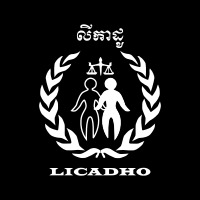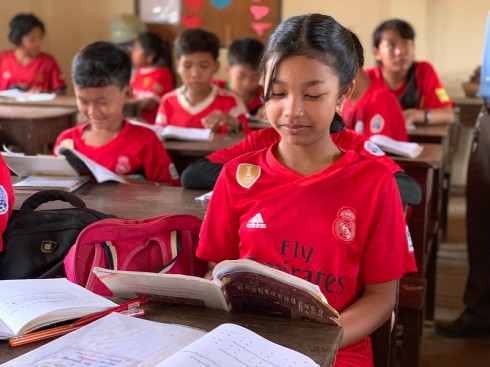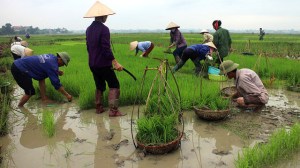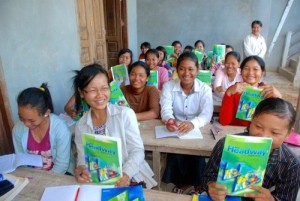By Patricia Brick

A BGR project with LICADHO (the Cambodian League for the Promotion and Defense of Human Rights) provides critical aid to incarcerated pregnant women and new mothers and their children.
The Cambodian prison system is plagued by overcrowding, squalid conditions, and widespread corruption. Detainees’ rights are often neglected, and Cambodian prisons do not provide detainees with essentials, such as nutritious meals, clean drinking water, quality medical care and sanitary living conditions. Children under the age of 3 are allowed to live in prisons with their parents, where they are exposed to gruesome prison conditions and lack essential nutrients at a crucial point in their physical and mental development. As of June 2020, more than 100 children were known to be imprisoned alongside their mothers.
A BGR project with LICADHO (the Cambodian League for the Promotion and Defense of Human Rights) improves the quality of life for incarcerated pregnant women and new mothers and their children. The Early Years Behind Bars (EYBB) project provides food, including rice, dried fish, and soy milk, as well as hygiene materials such as soap, toothpaste and toothbrushes, and laundry detergent, to pregnant women and mothers with children. The project team also interviews the women to monitor the conditions of the prisons, ensure that the materials provided meet the women’s needs, and determine if any additional medical or legal support is needed. In the project year that ended in June 2020, the project had benefited 205 children and their mothers as well as 90 pregnant women across 16 prisons.
According to figures from our partner, the prison population in Cambodia has increased from 21,900 in 2016 to nearly 39,000 in March 2020, the result of a crackdown on minor drug offenses; nearly three-quarters of people in detention had not yet been given the opportunity to stand trial. In a prison system with a capacity of 26,593, overcrowding was a grave problem even before the Covid-19 pandemic began spreading among incarcerated people worldwide. With as many as 530 prisoners forced into a single cell, with limited access to clean water, “Covid-19 safety measures such as physical distancing and frequent hand washing are impossible,” our partner reports. Government reforms announced this summer to potentially lower the number of prisoners have been slow to take effect.
Our partner reports that following the outbreak of the Covid pandemic in Cambodia in March, for several months the project teams’ access to the prisons was curtailed. Team members were required to leave the food and hygiene materials with prison staff to distribute, and in one case were not permitted to leave food and materials for the incarcerated women for several months. Access was reopened as of late July.
Our partner shared three stories of incarcerated women who benefited from this program. Their names have been changed to protect the women’s identity.
Kunthea, a 32-year-old mother of two, was two months pregnant when she was arrested without a warrant on drug-related charges in July 2019. Our partner writes: “She was forced to confess and thumbprint the record without knowing what the document said … In April 2020, a judge sentenced her to 10 years in prison and fined her 20 million riel, which is equivalent to approximately U.S. $5,000.” She gave birth to her daughter in March 2020 and brought the infant to prison, where she is serving her sentence in a cell shared with seven to twelve other detainees. Kunthea was unable to provide sufficient milk to exclusively breastfeed her daughter, and her family cannot afford to provide additional food for the new mother or her infant. The EYBB project provided milk powder, food, and other essential items for Kunthea and her baby.
Leakhena was arrested on drug-related charges in September 2019 and received food from EYBB during her pregnancy and postpartum to supplement the meager food provided by the prison. She gave birth to a healthy daughter in June 2020. Her sister is currently caring for the baby outside of prison.
Bopha was also arrested on drug-related charges last autumn and also was “forced to confess and thumbprint the record without knowing what it was.” She gave birth to a baby girl in June. With her husband also incarcerated and lacking family outside of the prison who could care for the baby, Bopha had no choice but to keep the infant with her. She shares a cell with thirteen other detainees. The EYBB project provides her with hygiene items and food, which she described as being enough that she doesn’t feel hungry.
Patricia Brick is a staff writer for Buddhist Global Relief. This story is based on reporting from our partner LICADHO, the Cambodian League for the Promotion and Defense of Human Rights.









 Rachana is a Cambodian organization dedicated to improving the socio-economic well-being of poor and vulnerable communities in Cambodia. Rachana promotes the System of Rice Intensification (SRI), an ecologically sensitive agricultural methodology that increases yields of rice from an average of 2 tons to 4.75 tons per hectare. BGR has already partnered with Rachana over the past three years in spreading the use of SRI, with highly favorable results. The program has enabled farmers to feed their own families better and obtain a surplus to sell on the market. As a result, SRI has substantially boosted family incomes. The annually renewable program will promote SRI in eight villages, five old ones and three new ones.
Rachana is a Cambodian organization dedicated to improving the socio-economic well-being of poor and vulnerable communities in Cambodia. Rachana promotes the System of Rice Intensification (SRI), an ecologically sensitive agricultural methodology that increases yields of rice from an average of 2 tons to 4.75 tons per hectare. BGR has already partnered with Rachana over the past three years in spreading the use of SRI, with highly favorable results. The program has enabled farmers to feed their own families better and obtain a surplus to sell on the market. As a result, SRI has substantially boosted family incomes. The annually renewable program will promote SRI in eight villages, five old ones and three new ones. Since 2009, BGR has been partnering with U.S.-based
Since 2009, BGR has been partnering with U.S.-based  With support from BGR, Lotus Outreach has extended rice support to GATE graduates who enroll in college or university programs. These graduates, who have risen up from poverty to enter university, are called GATEways scholars. The grant from BGR will provide rice support to 52 impoverished families of the poorest girls in the GATE program and to 89 university students enrolled in the GATEways scholarship program. With continued scholarship support, these young women will rank among the exclusive 1% of Cambodia’s female population to receive a college education. An annually renewable program.
With support from BGR, Lotus Outreach has extended rice support to GATE graduates who enroll in college or university programs. These graduates, who have risen up from poverty to enter university, are called GATEways scholars. The grant from BGR will provide rice support to 52 impoverished families of the poorest girls in the GATE program and to 89 university students enrolled in the GATEways scholarship program. With continued scholarship support, these young women will rank among the exclusive 1% of Cambodia’s female population to receive a college education. An annually renewable program.